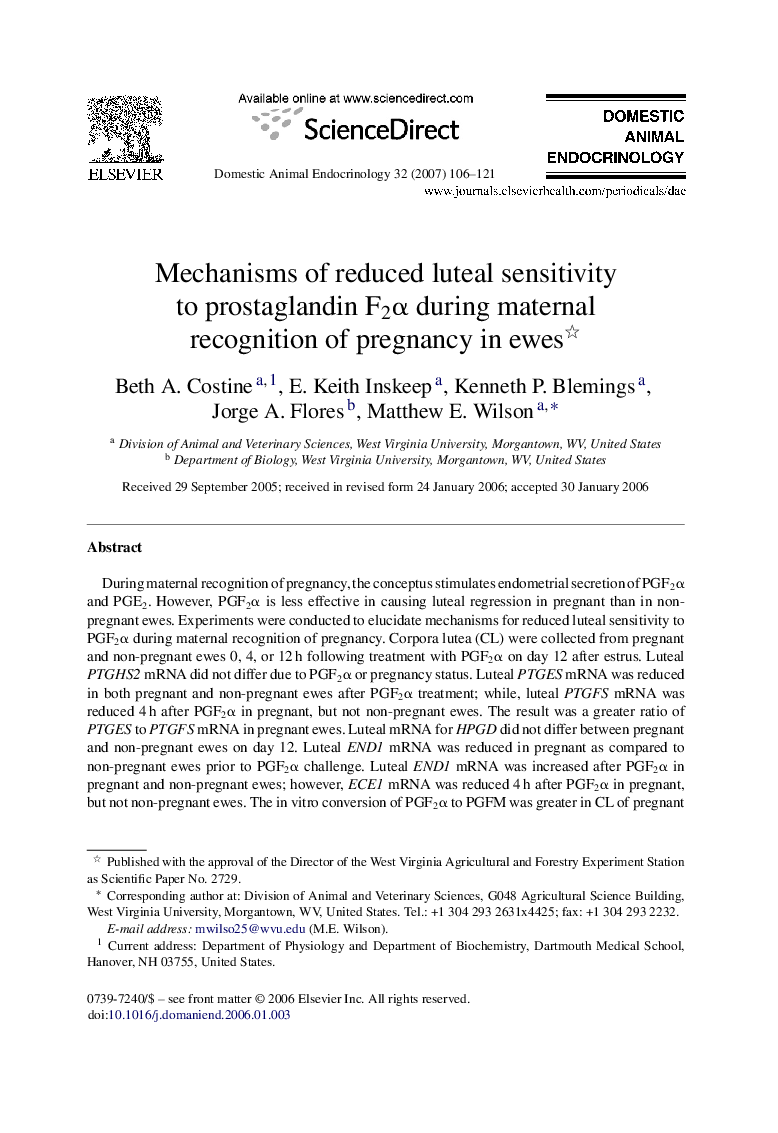| Article ID | Journal | Published Year | Pages | File Type |
|---|---|---|---|---|
| 2394187 | Domestic Animal Endocrinology | 2007 | 16 Pages |
During maternal recognition of pregnancy, the conceptus stimulates endometrial secretion of PGF2α and PGE2. However, PGF2α is less effective in causing luteal regression in pregnant than in non-pregnant ewes. Experiments were conducted to elucidate mechanisms for reduced luteal sensitivity to PGF2α during maternal recognition of pregnancy. Corpora lutea (CL) were collected from pregnant and non-pregnant ewes 0, 4, or 12 h following treatment with PGF2α on day 12 after estrus. Luteal PTGHS2 mRNA did not differ due to PGF2α or pregnancy status. Luteal PTGES mRNA was reduced in both pregnant and non-pregnant ewes after PGF2α treatment; while, luteal PTGFS mRNA was reduced 4 h after PGF2α in pregnant, but not non-pregnant ewes. The result was a greater ratio of PTGES to PTGFS mRNA in pregnant ewes. Luteal mRNA for HPGD did not differ between pregnant and non-pregnant ewes on day 12. Luteal END1 mRNA was reduced in pregnant as compared to non-pregnant ewes prior to PGF2α challenge. Luteal END1 mRNA was increased after PGF2α in pregnant and non-pregnant ewes; however, ECE1 mRNA was reduced 4 h after PGF2α in pregnant, but not non-pregnant ewes. The in vitro conversion of PGF2α to PGFM was greater in CL of pregnant than non-pregnant ewes at day 14. Luteal conversion of PGF2α to PGFM appears to be regulated post-transcriptionally. During maternal recognition of pregnancy, mechanisms of reduced luteal sensitivity to PGF2α may include a shift in prostaglandin production to the luteotropin PGE2, a reduction of ECE1 mRNA, and increased catabolism of PGF2α.
